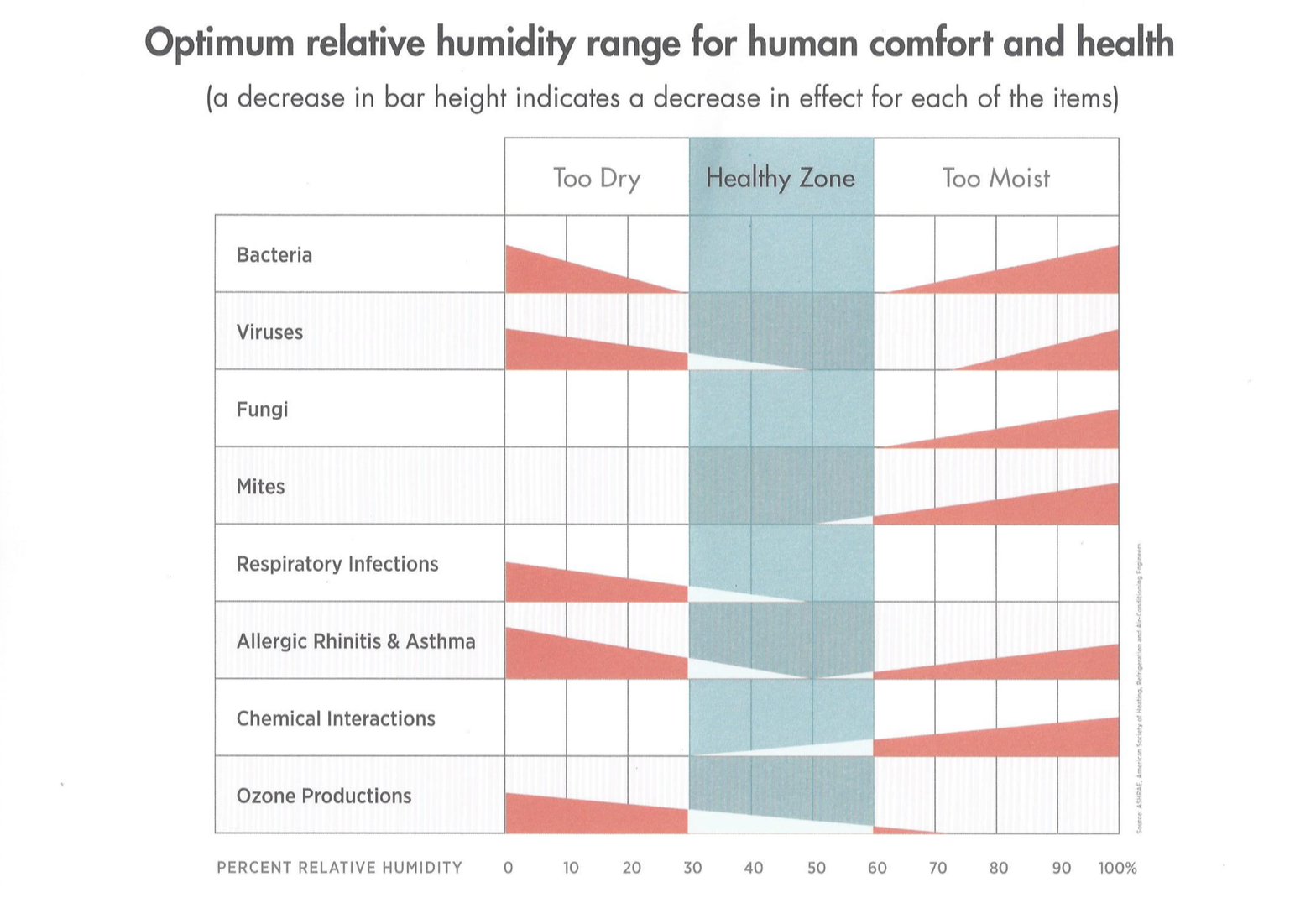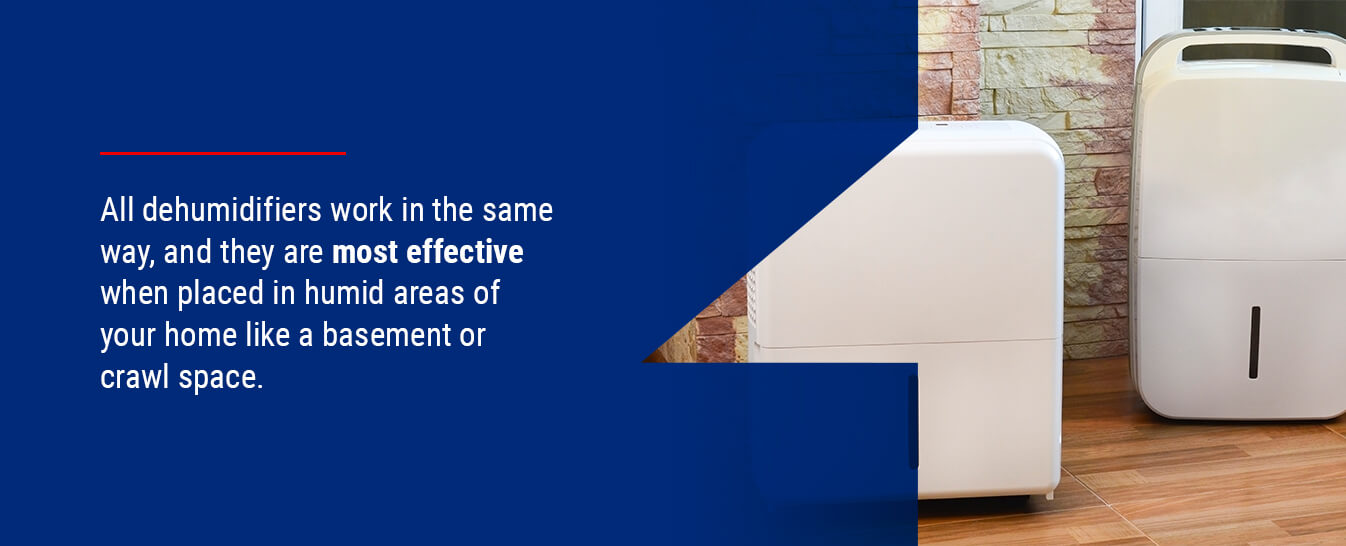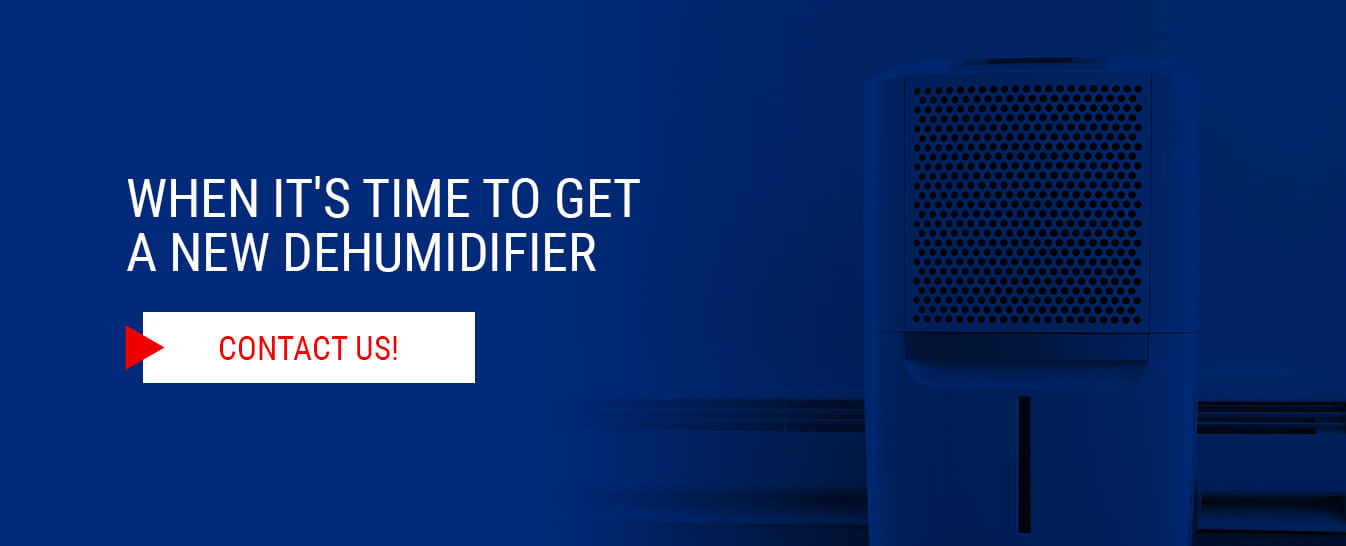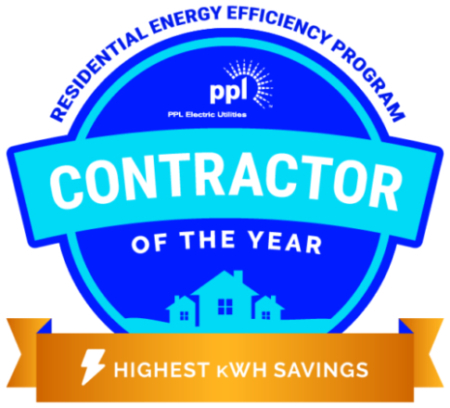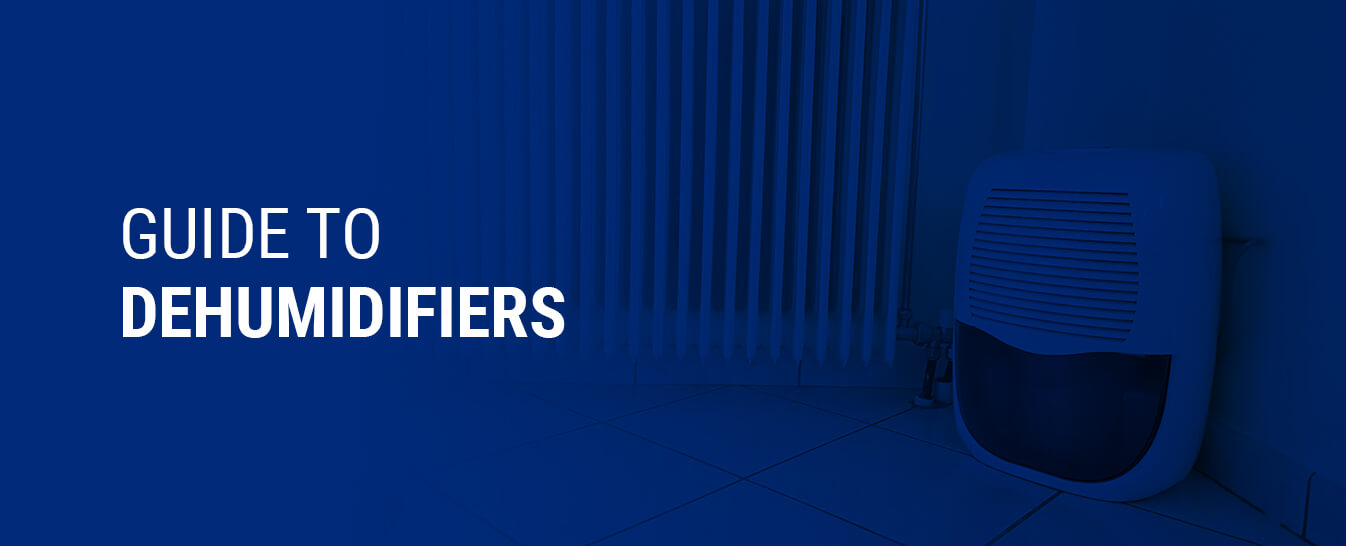
Guide To Dehumidifiers
If you struggle with allergies every year and feel uncomfortable in the humid heat, you might consider buying a dehumidifier. You probably have questions about installing a dehumidifier unit. Keep reading to learn how dehumidifiers help keep your home free of allergens and mold.
How Do Dehumidifiers Work?
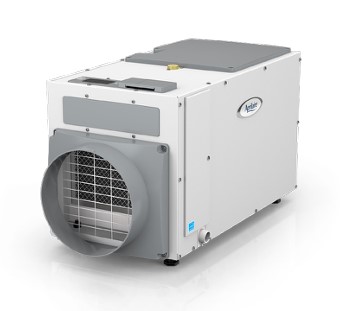
Appliances such as dehumidifiers and humidifiers are designed to control the humidity in the air you breathe. The overall humidity is how much water vapor is present in the air. Dehumidifiers remove moisture, making air drier and less humid.
A dehumidifier operates through the use of a fan that pulls air into the system’s refrigerated coils. As the damp air condensates inside the dehumidifier, it’s captured and removed. The discharged air is now dry and released back into the space or ducts to create a less humid environment.
A dehumidifier of good quality should be able to lower the humidity beyond just the room where it’s located. For healthy indoor air quality, the optimum humidity levels in a home should range between 30 – 60%.
When Is the Best Time to Use a Dehumidifier?
You can generally use a dehumidifier for most of the year, of course it makes the biggest difference during the most humid months. The spring, summer and early fall are typically the times a dehumidifier is most critical. Although for basements and crawlspaces a dehumidifier may operate year-round due to the increased moisture from the ground.
Dehumidifiers are great for making hot, muggy weather more bearable.
Signs You Need a Dehumidifier
You might be thinking about getting a dehumidifier because you or someone else in your household suffers from allergies or asthma. This system can help ease the symptoms of these conditions, making it a good investment. Reasons you might want to buy a dehumidifier include:
- Someone in your home has been experiencing severe or prolonged allergy symptoms
- Someone in your home has a confirmed allergy to dust mites
- You developed new allergies or your allergies have worsened
- Insects are often present in one or more areas of your home
- The air inside your home is damp or muggy
- You smell a persistent musty or damp odor
- Your home can’t get comfortable in the summer
Symptoms of airborne allergies may include:
- Irritated, itchy or watery eyes
- Sneezing
- Wheezing
- Itchy skin
- Difficulty breathing
Common airborne allergy triggers that a dehumidifier may be able to help reduce are:
- Dust mites
- Pet dander
- Pollen
- Mold
The Benefits of Using Dehumidifiers
These are the many benefits of dehumidifiers:
- Have a cooling effect: A lower humidity will make your home feel cooler. While it’s running, your air conditioner may not have to work so hard.
- Keep food fresh: Less humidity keeps foods fresh longer
- Reduce damage: A dehumidifier keeps furniture and building materials from damage
- May help ease symptoms of illness: Moist, hot air is more difficult to breathe. Spending time in an environment with high humidity may worsen asthma symptoms. Those who struggle with COPD may find relief from using a dehumidifier when humidity is too high.
- Create a healthier environment: A dehumidifier reduces mold spores and dust mites. The dryer air should also prevent other pests from living in your home. Dust mites require humidity of at least 65% to thrive, and most humidifiers can ensure the humidity stays lower than that.
Where to Place a Dehumidifier
All dehumidifiers work in the same way, and they are most effective when placed in humid areas of your home like a basement or crawl space. You will want to choose the dehumidifier based on the needs of the whole home. The square footage of the space can influence how effective the system will be. Other factors that matter are the temperature and starting humidity.
The dehumidifier’s capacity is measured by how many pints of humidity the system can extract from the air in 24 hours. A lower capacity dehumidifier found in stores is only suited to cover a small space or individual room and will not provide the benefits to a whole home or large space. Portable dehumidifiers use a lot of energy compared to their benefits and often require emptying of their collection buckets.
Central PA homes and especially basements have humidity problems that can result in damage, insects, and mold problems, especially in the summer months. A whole-home dehumidifier is best suited to maintain healthy humidity levels throughout large spaces and homes.
When It’s Time to Get a New Dehumidifier
Work with Zimmerman Plumbing, Heating & Air Conditioning to lower the humidity in your home if you’re in Central Pennsylvania. We can install your new whole-home dehumidifier the right way.
Contact us today to get a free quote or if you have questions about the process. Our services come with full warranties and a 100% satisfaction guarantee.

